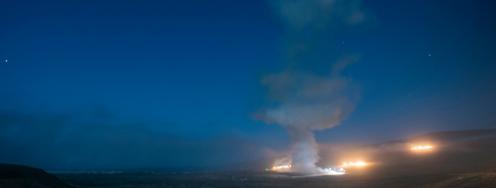The Unaffordable Failures of Missile Defense
$35B Missile Defense Misses Bullet With Bullet - Elliot Blair Smith and Gopal Ratnam in Bloomberg
August 5, 2011
Today's top nuclear policy stories, with excerpts in bullet form.
Stories we're following today: Friday, August 5, 2011.
$35B Missile Defense Misses Bullet With Bullet - Elliot Blair Smith and Gopal Ratnam in Bloomberg [link]
- No one knows whether the $35 billion [U.S. missile defense] program would work … The system has flunked 7 of 15 more limited trials, yet remains exempted from normal Pentagon oversight and so far has been spared the cuts Congress is demanding in other areas of federal spending.
- Two decades after the Soviet Union’s collapse eliminated the enemy that inspired it, missile defense is getting more money in a time of federal belt-tightening and military spending reductions … lawmakers budgeted a 1.2 percent increase, to $8.6 billion, for all missile defense programs in fiscal 2012.
- Lawmakers have been reluctant to challenge spending because the program generates jobs and neither party wants to appear soft on defense, says Gordon Adams, a professor at American University in Washington.
Missile Defense Has Cost the US More Than the Entire Apollo Program - Sam Biddle in Gizmodo [link]
- The Apollo program put humans on the moon. Missile defense has been a colossal failure. The cost? Equal.
- ... failed missile defense has cost the US around $150 billion … What've we gotten for that chunk of change? Anti-ICBM facilities that are about as reassuring as me pointing a Nerf gun at the sky.
- Even the current next-best-futile-hope for missile defense, a Europe-based shield outlined by President Obama “ ... is highly fragile and brittle and will intercept warheads only by accident, if ever," explains MIT's Dr. Theodore Postol, himself a former Pentagon science advisor.
- What else could we have spent $150,000,000,000 on? Anything else we might need? We could have at least taken $22 billion out of there to keep our [U.S. Navy] boats from rusting apart.
U.S. Prepared to “Snatch” Pakistani Nukes, Report Claims - Global Security Newswire [link]
- U.S. military and intelligence operatives are debating, strategizing, gaming and potentially even conducting drills on entering Pakistan and seizing the unstable nation's nuclear weapons during a crisis, NBC News reported on Wednesday.
- The United States has worried about the security of the South Asian nation's atomic assets since before the September 11 attacks and has provided advice [and roughly $100 million in aid] to Islamabad in the years since on best practices for protecting the arsenal.
- [Pakistani physicist] Pervez Hoodboy … said a U.S. attempt to seize the nuclear weapons would backfire … "An American attack on Pakistan's nuclear production or storage sites would be extremely dangerous and counterproductive."
21st Century Deterrence Challenges - Rose Gottemoeller [link]
- While we still have much homework to do, we and the Russians can begin talking about some big concepts … including the pursuit of a future agreement with Russia for broad reductions in all categories of nuclear weapons.
- ... it is also time to begin a multilateral dialogue within the P5 … The United States is proud to be at the leading edge of transparency efforts … We hope that all countries will join in the common effort to increase transparency and build mutual confidence. Confidence-building, at its very core, is a shared effort.
- It is absolutely imperative that we continue to adapt and evolve our thinking to match the circumstances around us. Anticipating and preparing for changes in deterrence will be necessary for the continued security of our nation.
How Do You Visualize 200,000 Dying People? - Joshua McElwee in National Catholic Reporter [link]
- You stand at the site of humankind's first use of nuclear weapons, and you can't come up with any way to understand it. What scale is there for the human mind to comprehend so many dying people … ?
- The answer, I thought to myself outside Hiroshima's A-bomb dome, is that there isn't one.
- The dome, one of the few remaining buildings after the Aug. 6, 1945, atomic bombing of the city, makes it all too incomprehensible. Where is the sense in this? What does such horror achieve?



